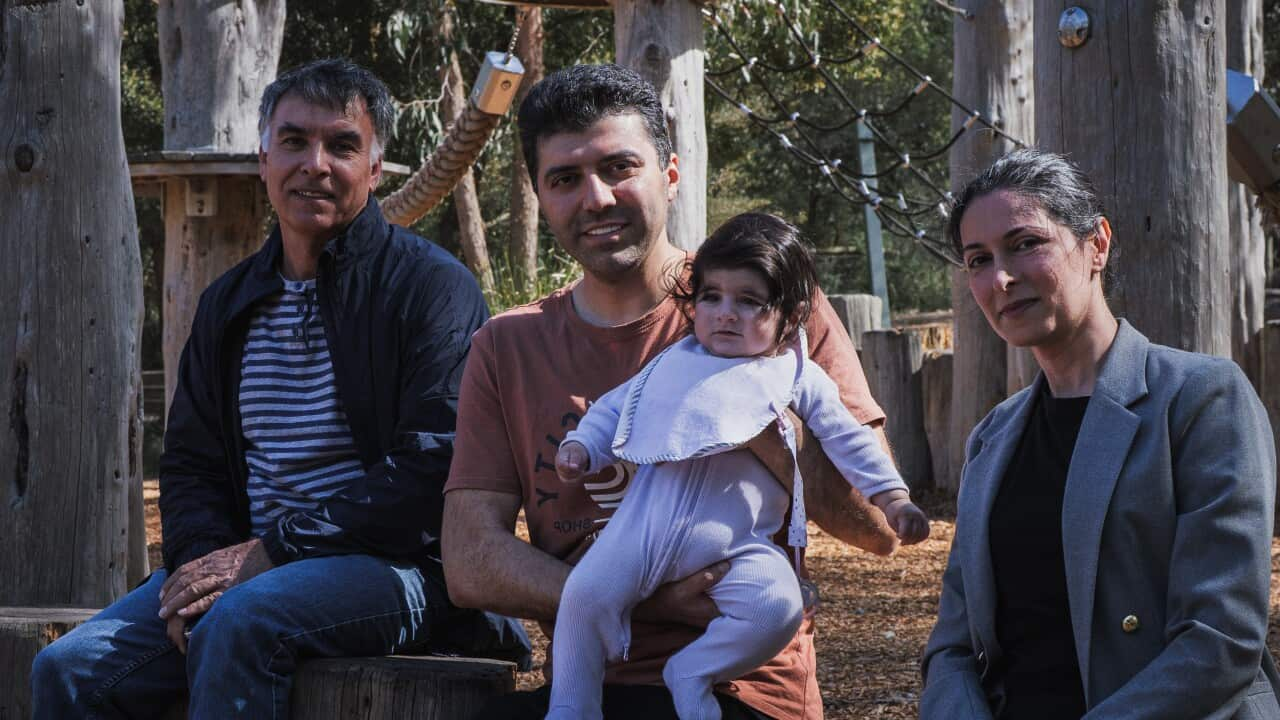In 2019, Egyptian Australian businessman Ahmed Sokarno arrived in Tehran to sell to a group of Iranians the dream of a new life in a "land of opportunities".
Sokarno's offer was simple: Invest in Australian disability accommodation, get "guaranteed" annual returns of between 10 and 24 per cent and secure permanent business visas.
Several of them bought in, transferring hundreds of thousands of dollars to companies set up by Sokarno and his company, then known as Auscare.
One of the investors, Saadegh Shams Haaeri, tells SBS News his wife Zainab Kaaranjaam "had a dream about Australia".
[We wanted to] grow our children in a free, fair, and developed country … We wanted to have a better future for our baby.
Shams and Kaaranjaam are pharmacists who co-owned a pharmacy in Tehran — a business they sold to fund their $600,000 investment in Australia.
That money, which was the accumulation of over 15 years of hard work and several hundred thousand from Kaaranjaam's inheritance, was their "life savings", Shams says.
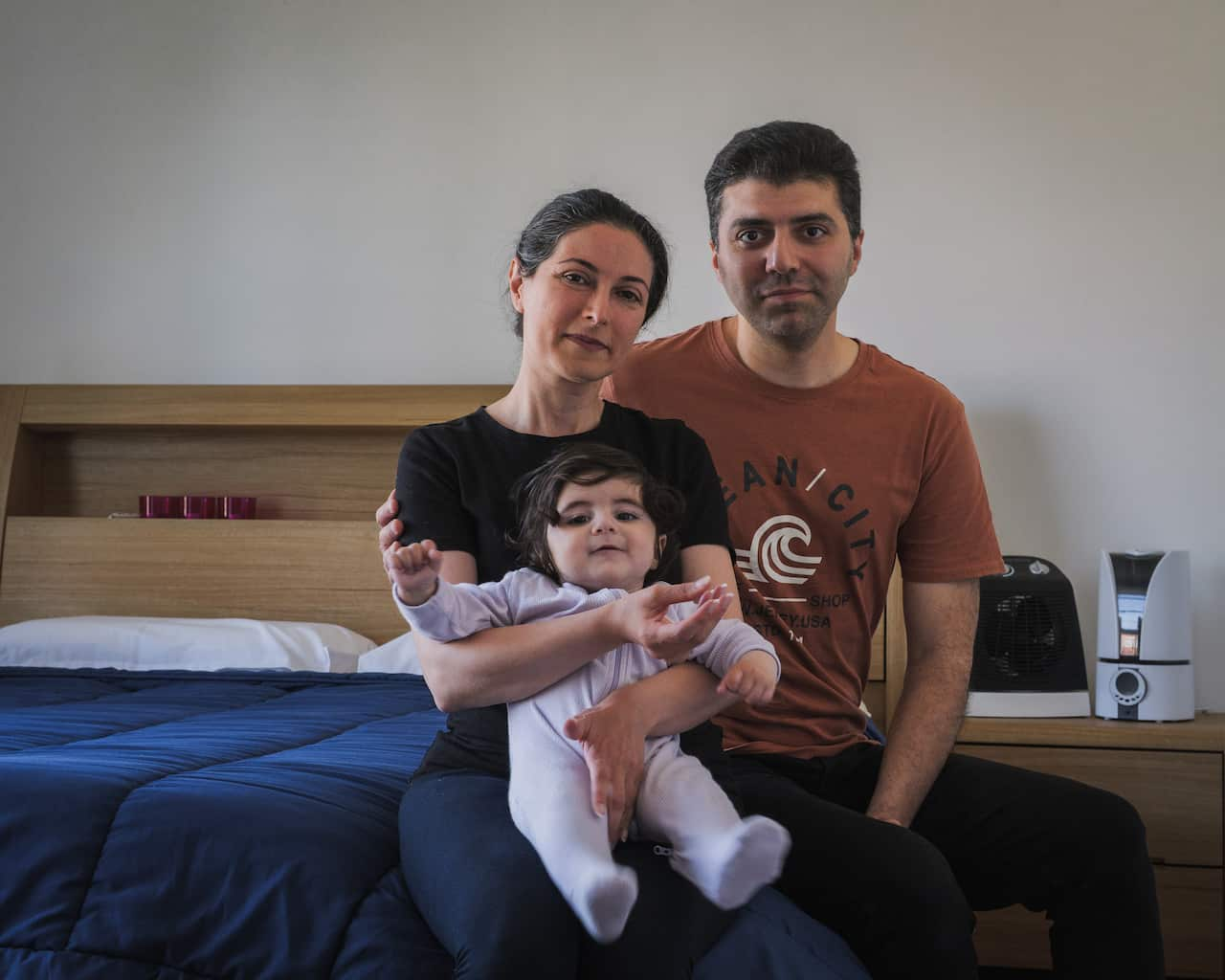
In addition to the promise of "guaranteed" returns, investors' confidence in Auscare was bolstered by the fact that, at the time, the company's director was a former premier of Queensland, Rob Borbidge.
While some investors made it to Australia, their dreams never eventuated.
By 2022, all of the money they'd transferred was in bank accounts to which they had no access, and construction of the homes was yet to start.
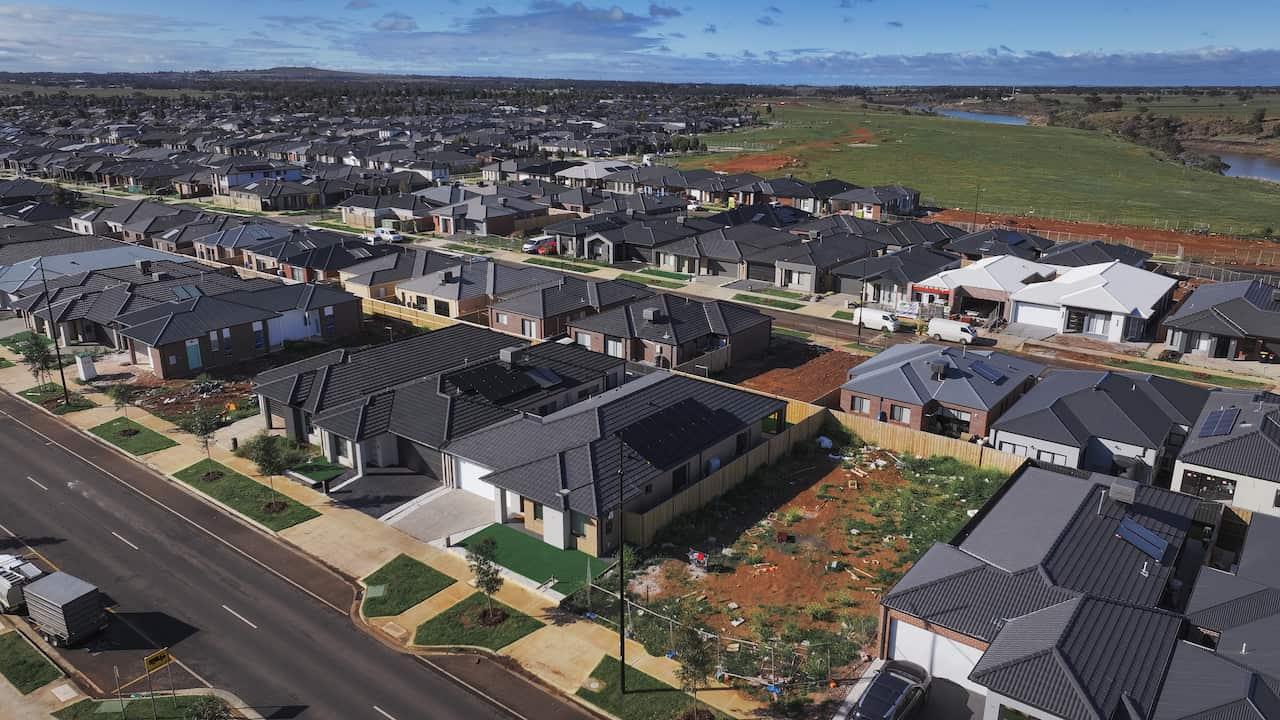
Some have now returned to Iran, while others remain in Australia, working whatever jobs they can to make ends meet.
Their story is among the many unrealised promises that have emerged in connection with the National Disability Insurance Scheme's (NDIS) Specialist Disability Accommodation (SDA) program, which relies on private sector investment.
'Everything looked very legitimate'
In July 2019, dozens of Iranians gathered at a hotel in Tehran to hear how Sokarno could help them secure temporary 188 Business Innovation and Investment visas — a pathway to permanent residency if a successful business is up and running. (The visa class was discontinued in July 2024.)
His proposal involved setting up a joint company with each investor to buy land, construct SDA housing and then collect rent from NDIS participants — revenue he told prospective investors was "guaranteed" because of the government's commitment to the NDIS.
"This business is guaranteed income because you get paid by the government," Sokarno told the seminar's attendees.
Two other investors, Amir Mohammadi and Hamidreza Dehghanian — who lost $462,900 and $115,600, respectively — tell SBS News that it was this promise of government support that won them over.
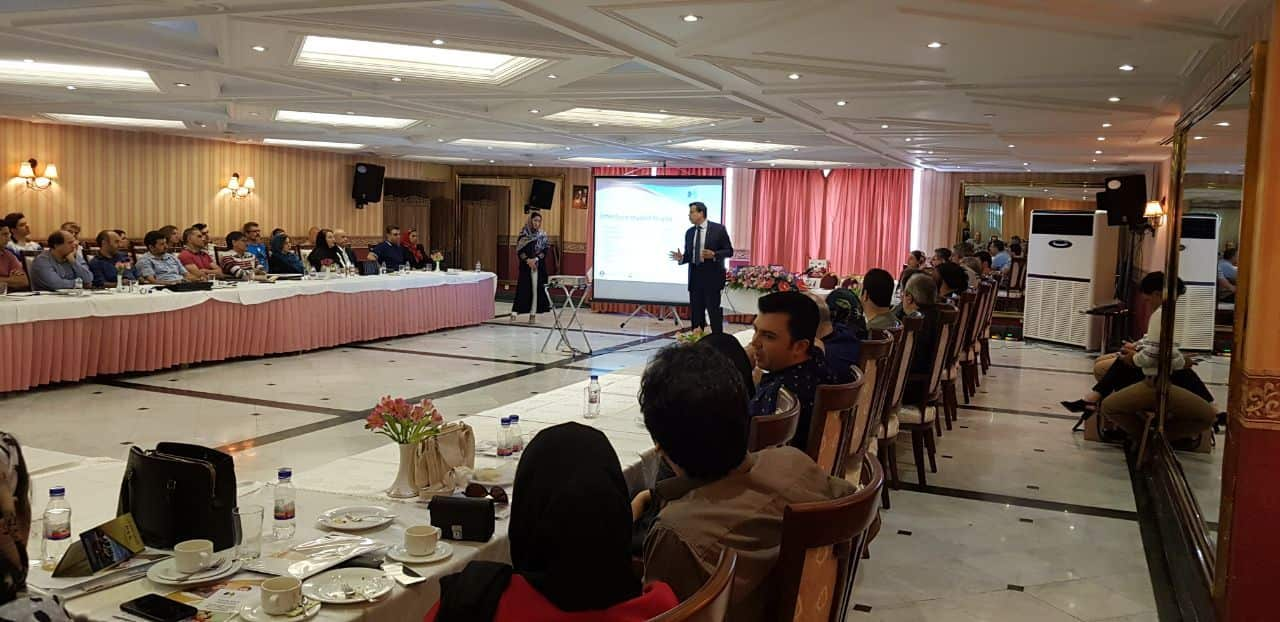
SBS News is aware of at least three other Iranian investors who also signed on.
Shams says he "didn't have any doubts because they gave us a lot of guarantees for the success of the business".
Everything looked very convincing and everything looked very legitimate.
Sokarno told participants they could expect returns of between 10 and 24 per cent per annum, stressing this was far higher than mainstream residential rental returns of between 4 and 6 per cent.
To put this into perspective, an initial investment of $600,000 would, according to Sokarno, deliver a return of between $60,000 and $144,000 a year.
The contracts Shams and Dehghanian ended up signing stated that their return on investment would be up to 24 per cent and no less than 10 per cent per year, while Mohammadi's contract promised returns of up to 28 per cent.
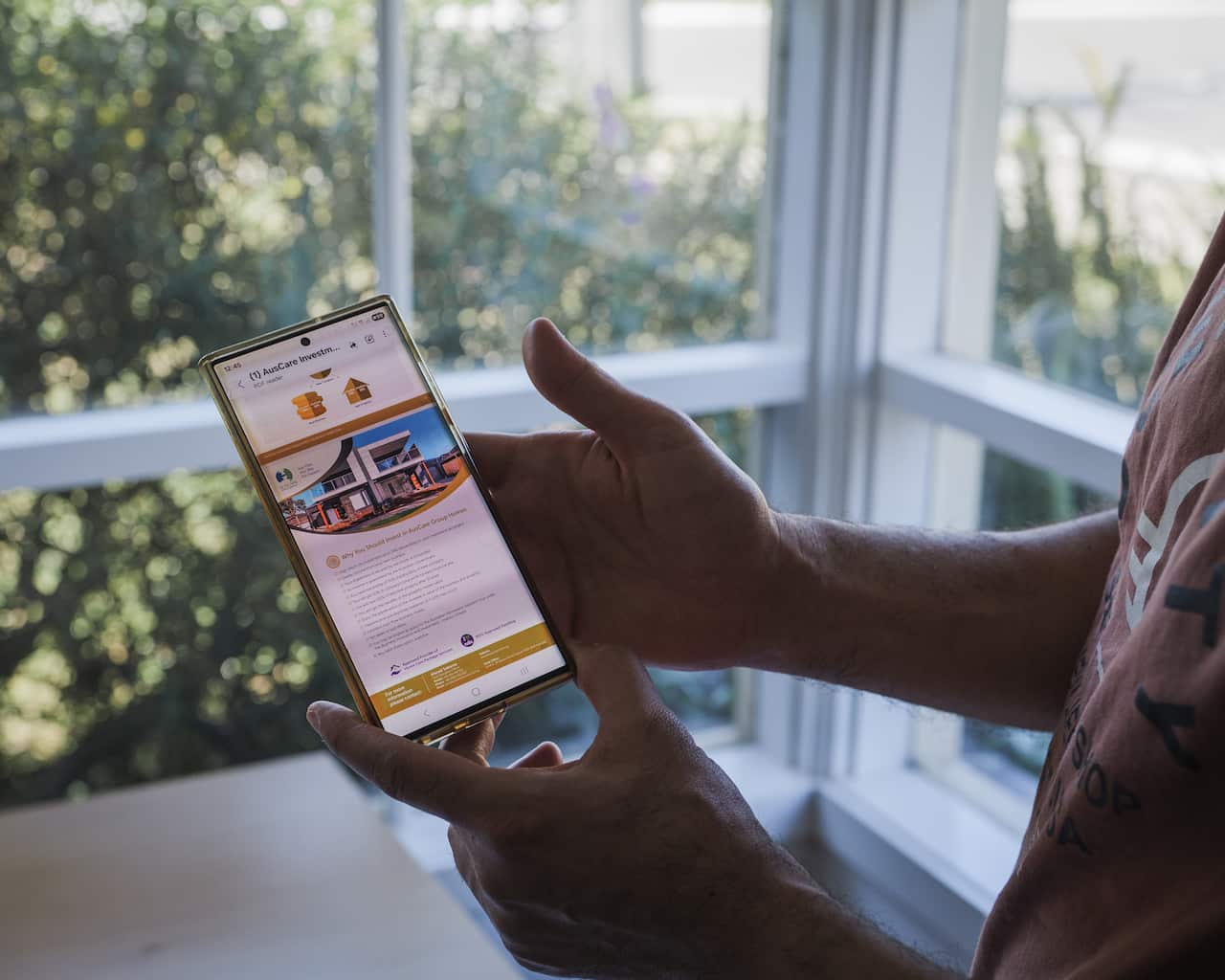
Experts tell SBS News promises of the SDA market providing "guaranteed" returns, especially returns that high, are misleading.
Responding to questions about these projections, Sokarno tells SBS News he "believed it was an honest representation at the time".
"There was, and continues to be, a high demand for SDA housing, and the potential returns vary depending on the property's location. These factors were communicated as part of the overall investment considerations," he says.
During his 2019 seminar in Tehran, Sokarno also mentioned several times that Auscare's director was Rob Borbidge, who served as Queensland's premier from 1996 to 1998.
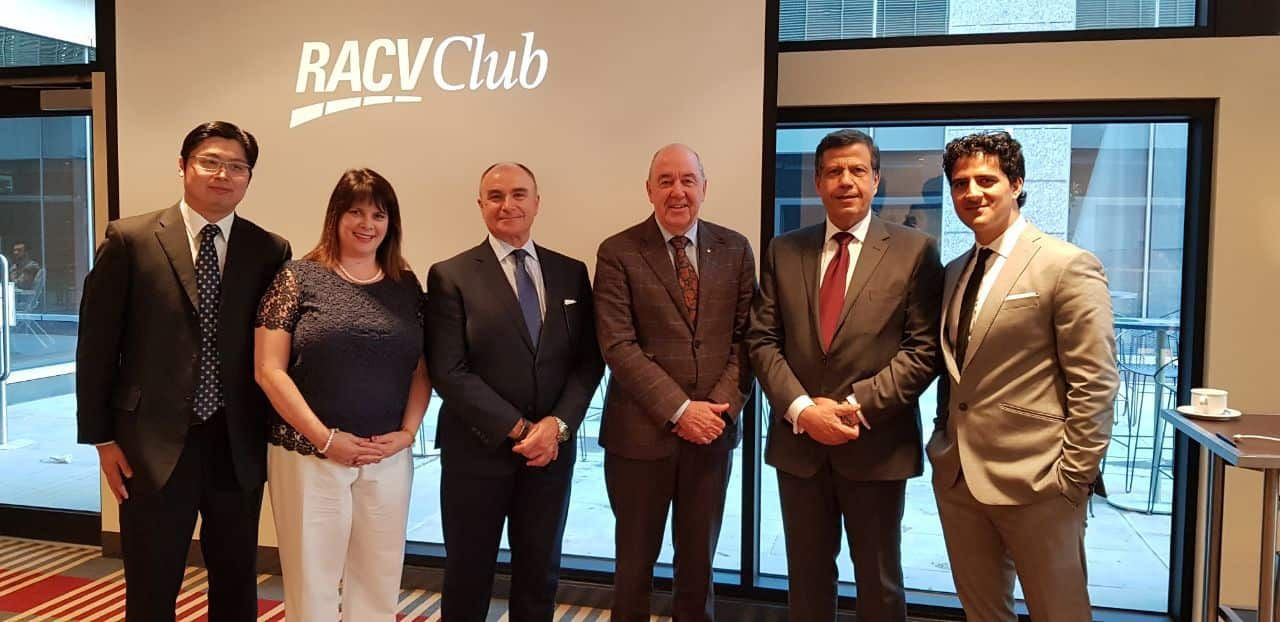
Borbidge's involvement gave Shams and Kaaranjaam confidence in Auscare. Shams says they were convinced someone of his stature was "not going to ruin his reputation" by being associated with a company that isn't reputable.
Borbidge stepped down from his director role in July 2022, around the same time Auscare changed its name to Care Services Australia following a legal challenge from a similarly named company.
Responding to questions put by SBS News, Borbidge denied he had any knowledge of the matters raised or involvement with any investors, saying: "To the best of my recollection, I] have never met any of the individuals referred to."
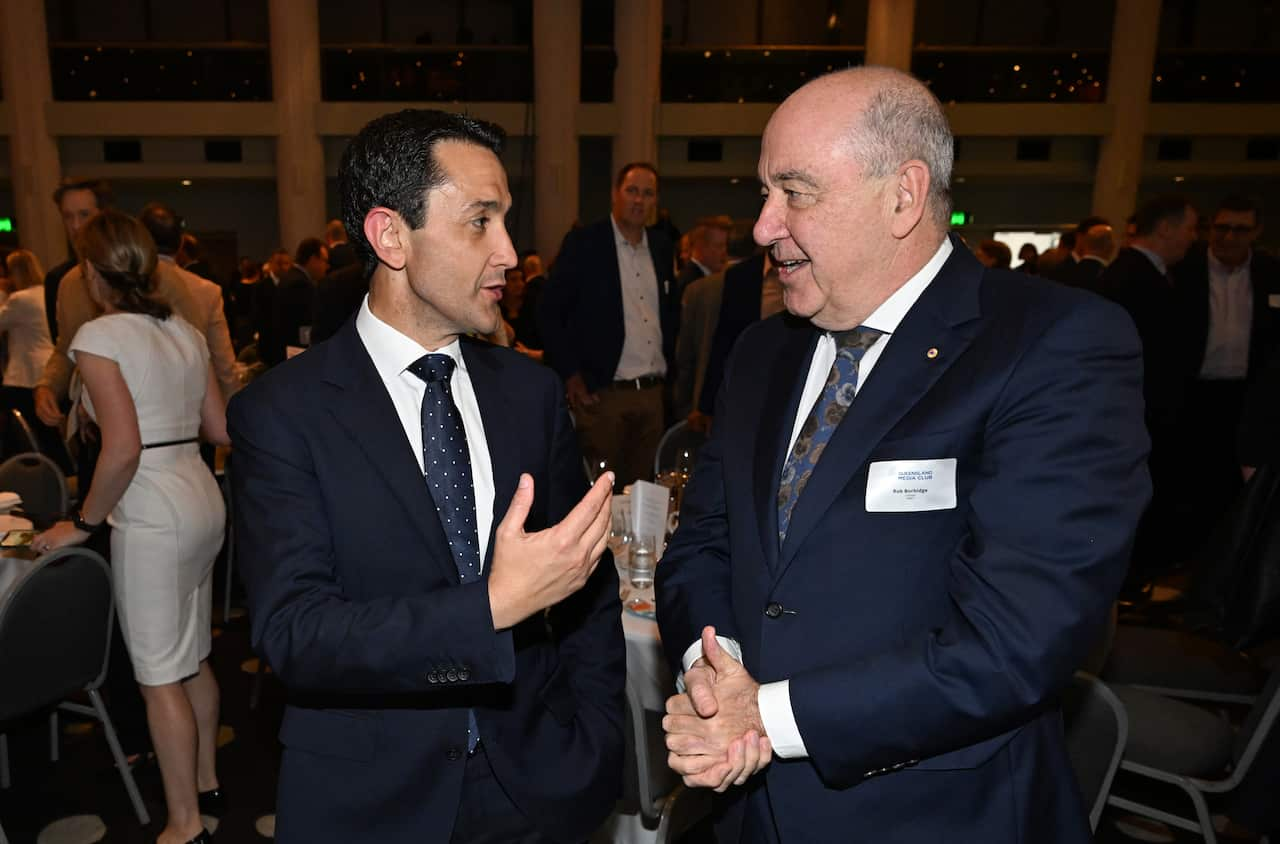
"I have never received any communication from the individuals concerned in regard to the matters you have raised during my time with Care Services Australia or since," Borbidge says.
In 2023, he was hit with a $112,361 tax bill for unpaid employee super payments that Care Services Australia allegedly failed to make during his tenure as director, The Courier Mail reported.
SBS News understands Borbidge paid the outstanding amount, and the action was discontinued.
'Not the time to think … time to act'
Mohammadi says that, at the time of the 2019 Tehran seminar, he was led to believe that "Auscare is one of the best companies in Australia".
Auscare — now Care Services Australia — was and remains a relatively small company.
Promotional material sent to investors ahead of the seminar describes Auscare as one of the "top three" NDIS providers in Australia, a point that also helped win over some investors.
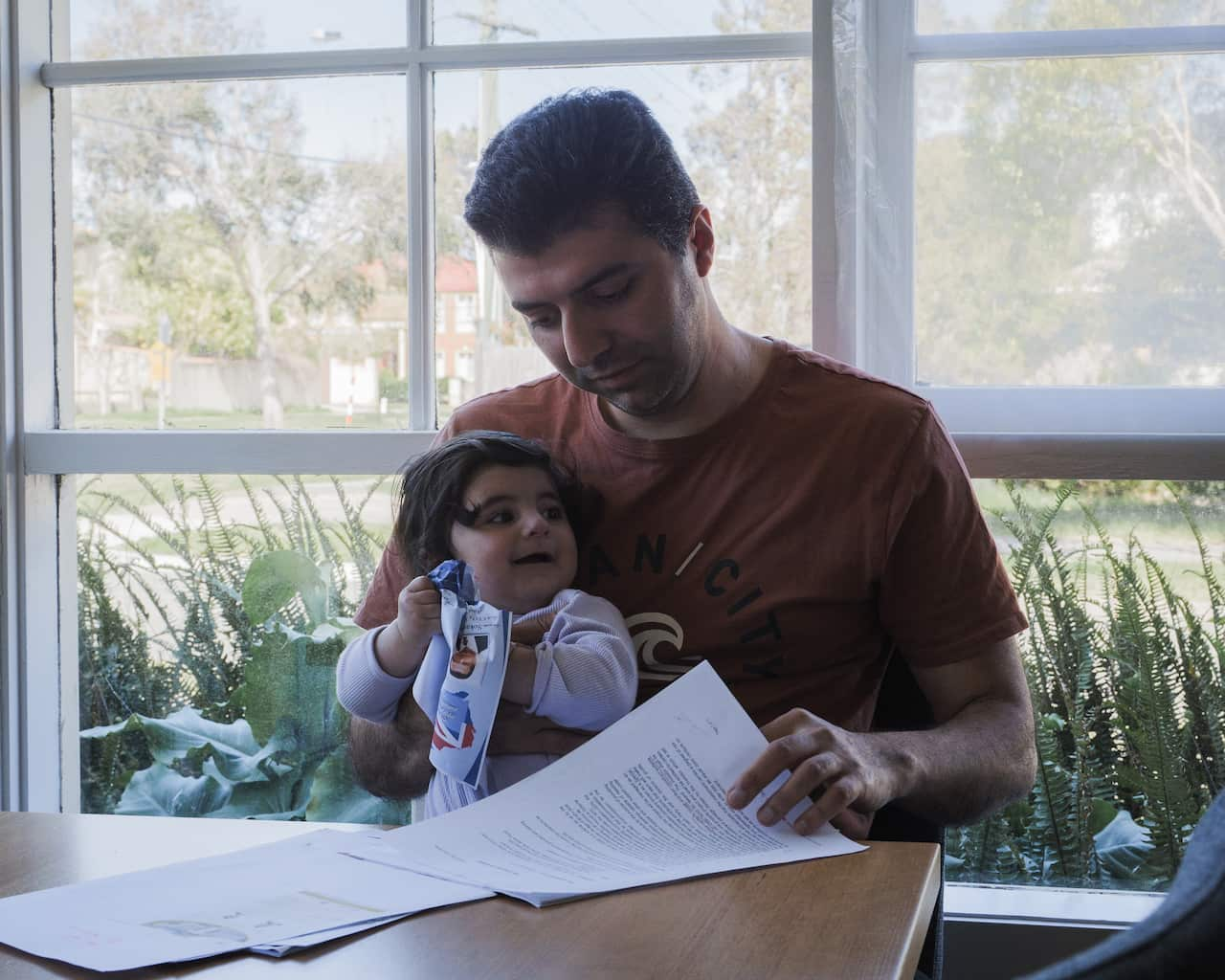
When asked whether this was an appropriate claim to make, Sokarno tells SBS News: "It is an accurate description, as we have been recognised as one of the leading providers with a strong focus on multicultural communities."
That material was shared by Ali Shahami, an Iranian-Australian migration agent, who was closely involved in recruiting the Iranian investors.
In fact, the company does not appear in any reputable listing of top-rated or large-scale NDIS providers.
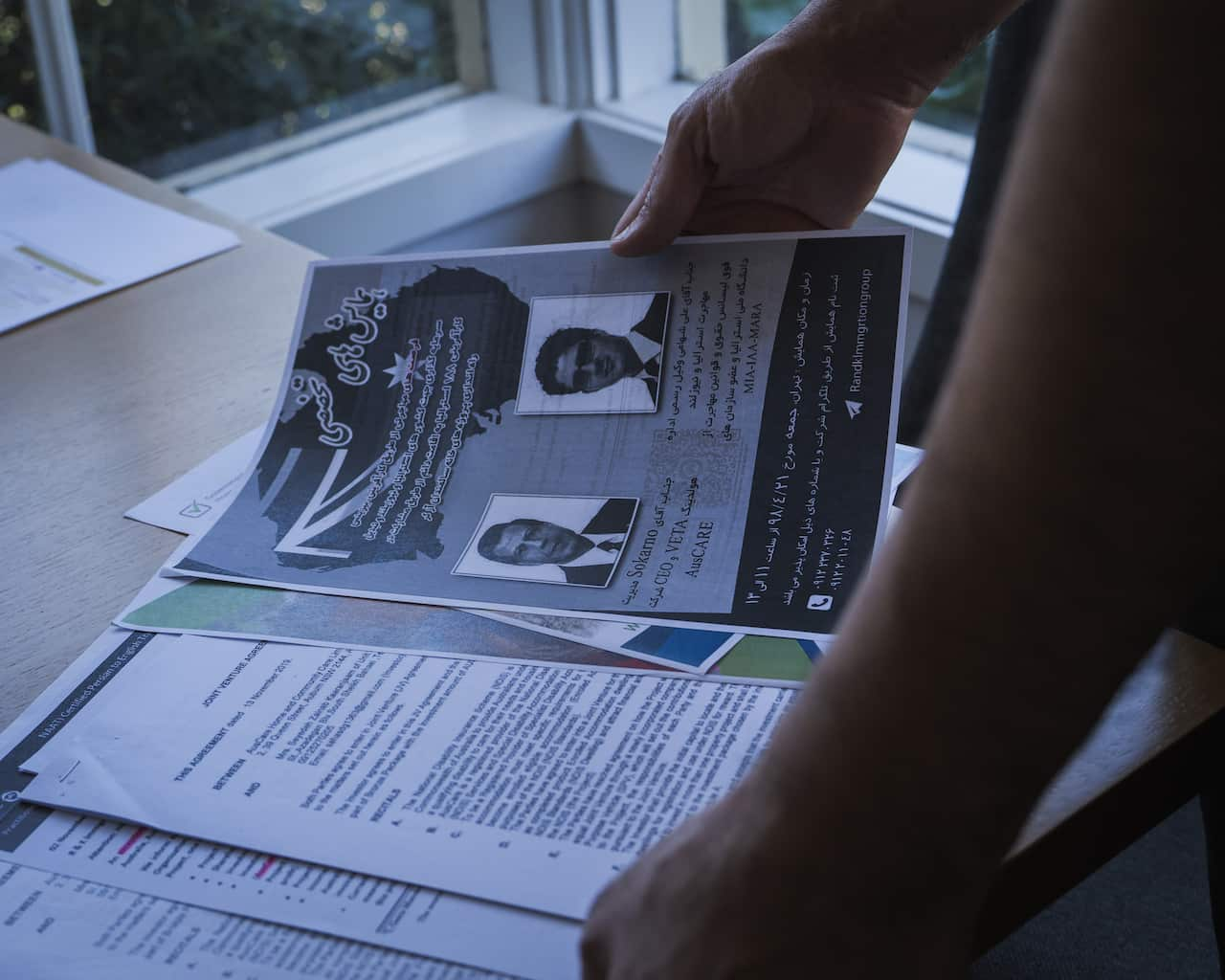
During the Tehran seminar, Shahami praised Sokarno's offer.
"If you have a plan, this is not the time to think. It is time to act," he said.
In a 2019 interview with a Persian-language community station, Shahami was introduced as the business development manager of Auscare, and promised investors that the company could organise a "work dinner" with the NDIS minister.
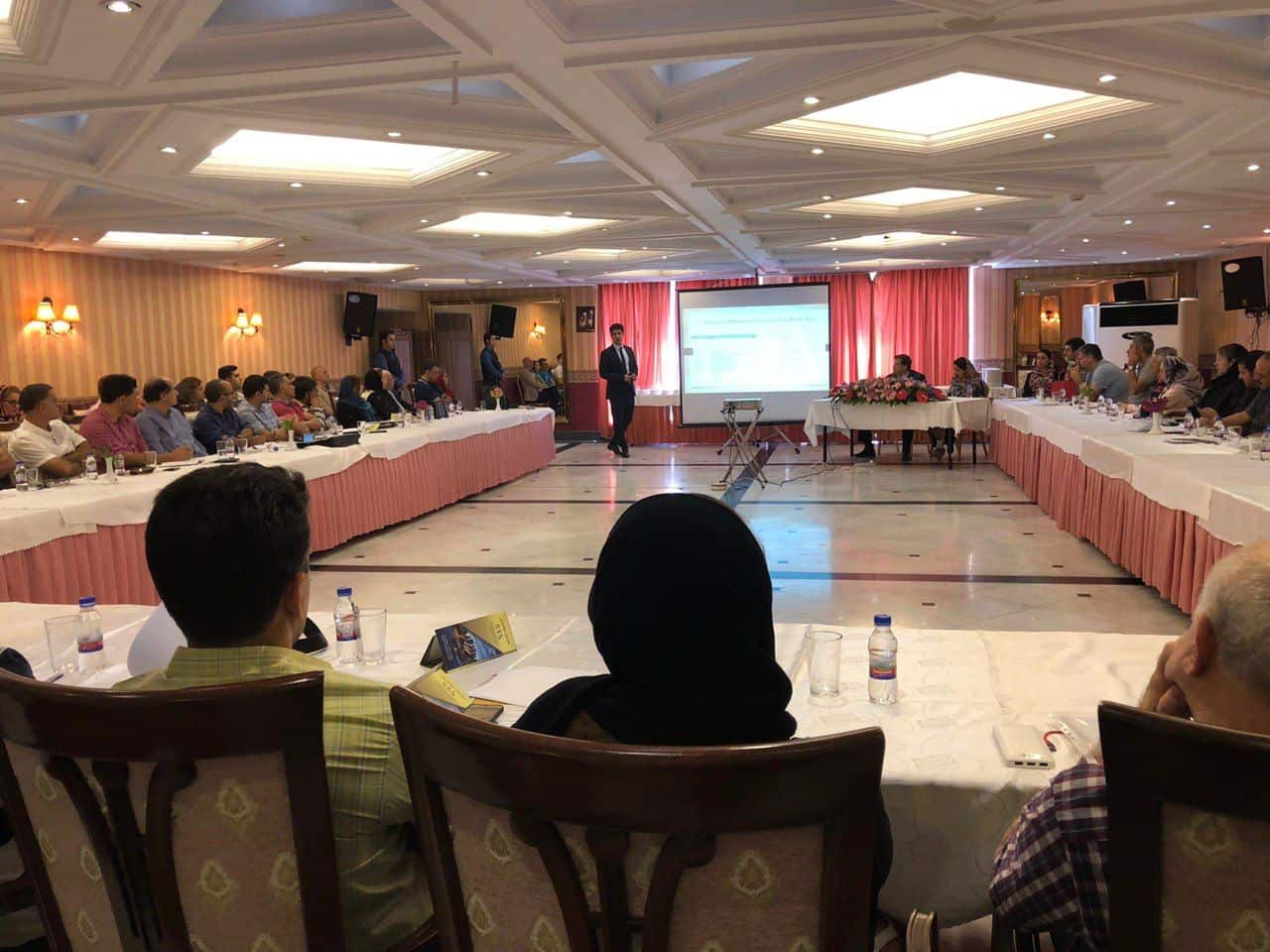
Sokarno confirmed to SBS News that Auscare engaged Shahami's company "as a consultant from 3rd February 2020 to 24th March 2020".
SBS News approached Shahami with a list of questions, but received no response.
'I felt there was something wrong'
At the Tehran seminar and in contracts signed with investors, Sokarno promised that, upon receiving the final investment amounts, NDIS-approved properties would be up and running within nine to 12 months.
At least two of the investors pulled out before providing all of the funds. They say they are still waiting for their money to be refunded.
Dehghanian came to Australia in May 2022. At this point, he had only handed over $115,600 of a promised $420,000 as he had "some hesitations [to pay the full amount] and decided to come to Australia and see the situation first".
"When I came to Australia, I felt there was something wrong and the investment was not going to work," he says.
In January 2023, he sought to exit the deal, but Sokarno quickly became unresponsive, Dehghanian says, adding that he was unable to afford a lawyer to take the matter to court.
According to Sokarno, Dehghanian's deposit was not repaid because, under the terms of the agreement, "early termination did not entitle the investor to an automatic full refund, particularly where funds had already been committed to project-related expenses".
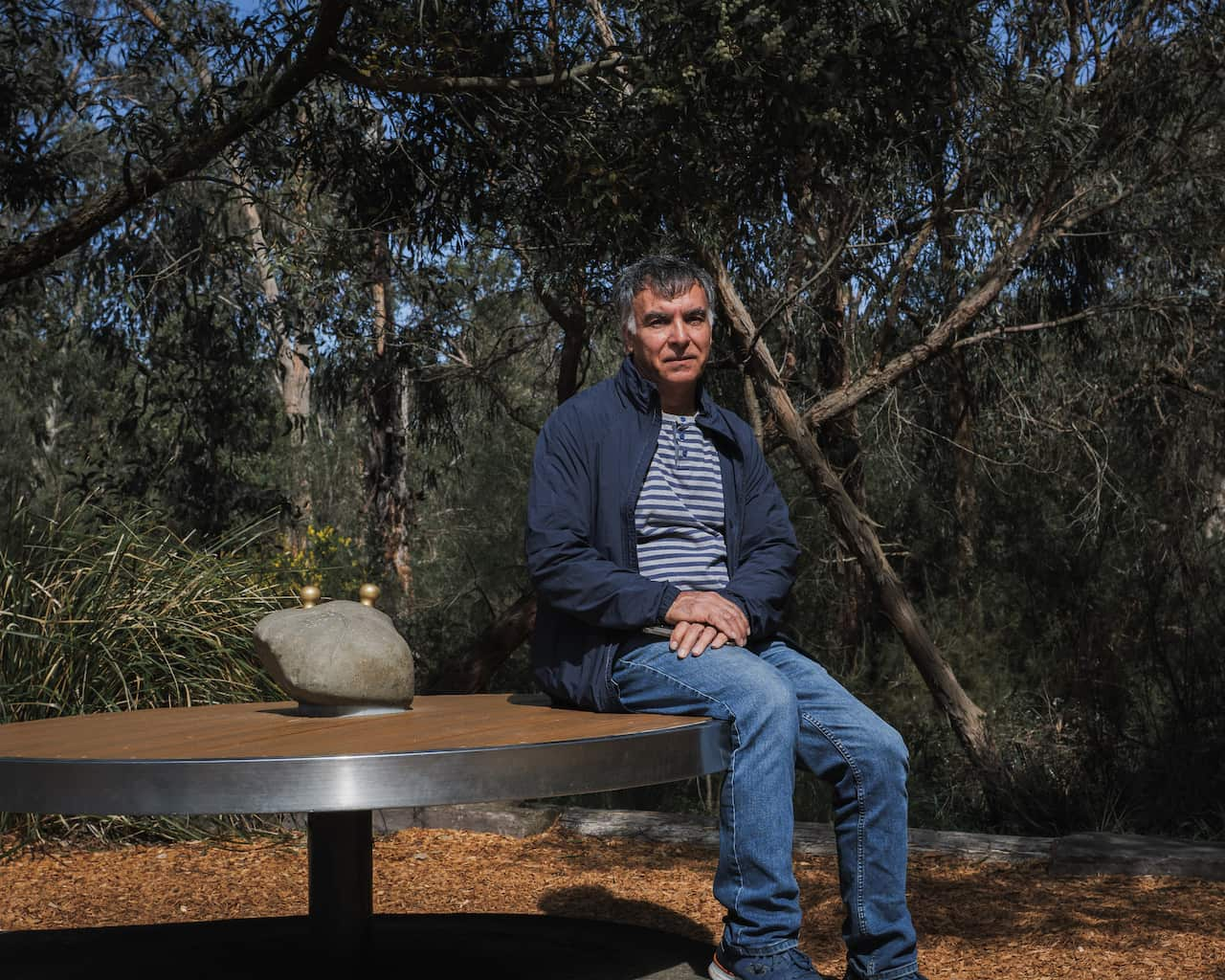
Mohammadi paid more than $462,000 of the promised $600,000 and planned to pay the rest after he landed in Australia in late 2022.
He says that, during his two weeks in Australia, he had several meetings with Sokarno and Shahami to discuss the project.
However, he soon became suspicious — especially when Sokarno refused to show him statements for their joint company's bank account, to which he still hadn't been granted access.
Other investors allege Sokarno and his accountant repeatedly refused to provide this information, despite multiple email requests sent over the span of several years, which have been seen by SBS News.
The joint venture partnership agreements — also seen by SBS News — contain several provisions giving investors the right to access bank accounts.
Sokarno says he had "made efforts to ensure transparency in accordance with those agreements".
"However, any specific requests for access were either addressed directly or pending clarification, particularly where banking or legal protocols required additional steps or third-party cooperation," he says.
"If there were delays or issues in providing access, they were not intentional."
He says Westpac, the bank at which the accounts were set up, raised issues with him relating to its 'Know Your Customer' (KYC) and Anti-Money Laundering (AML) obligations, particularly relating to some investors of Iranian nationality or origin.
"These requirements were outside of my control and applied to multiple investors … I am in the process of gathering documentary evidence from the relevant financial institutions that reflect these compliance-related issues and access restrictions," Sokarno says.
SBS News has not been provided with evidence to suggest the bank raised these issues, and multiple investors have confirmed they never received any documentation regarding this matter either. Westpac declined to comment on the matter.
Mohammadi then advised Sokarno in April 2023 that he wanted to cancel his investment in the project.
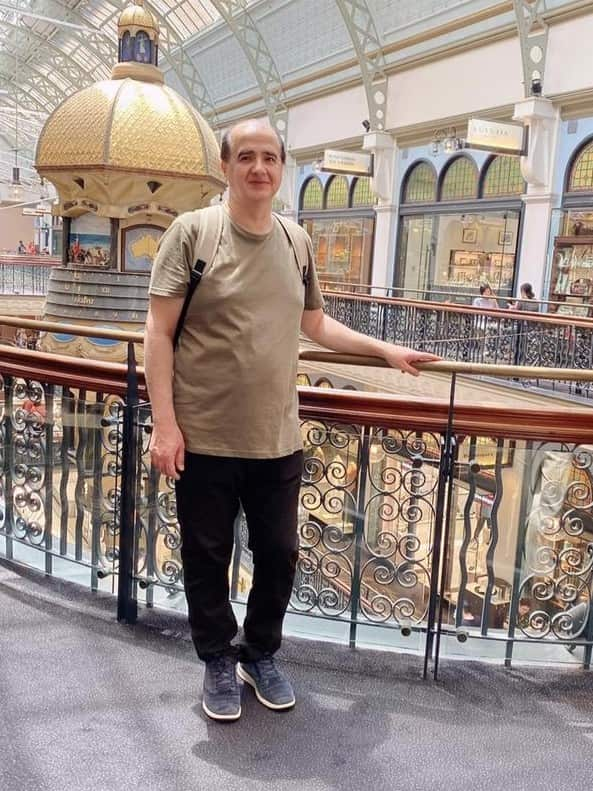
Mohammadi was advised by Sokarno's lawyer in May that he could recoup his money — minus $86,237 Sokarno had deducted for expenses — if either party found a replacement investor for the joint company.
So far, his money has still not been returned.
According to Sokarno, the reasoning behind his request to find a replacement investor is "to maintain the financial stability of the project and avoid jeopardising commitments already made on behalf" of the joint company.
He says multiple other provisions within the agreement "support the position that the return of funds is not unconditional or automatic", and other factors, such as "tax and accounting implications", also affected the return of the funds.
'We are trapped'
Unlike other Iranian investors interviewed by SBS News, Shams and Kaaranjaam paid the full investment amount before coming to Australia.
They had been pressuring Sokarno to buy a block of land since mid-2020, Shams says, and the process finally started in February 2022, a month before Shams and Kaaranjaam's arrival in Australia.
A statement of account seen by SBS News shows the joint company set up with Sokarno, Deniz Care, settled the land for $435,416 in June 2022, with around half the money paid upfront and half borrowed.
Given the delays in generating revenue, Sokarno employed Shams as a community engagement manager and Kaaranjaam as an administration manager for Auscare, but Shams says they were never paid for their almost four months of work.
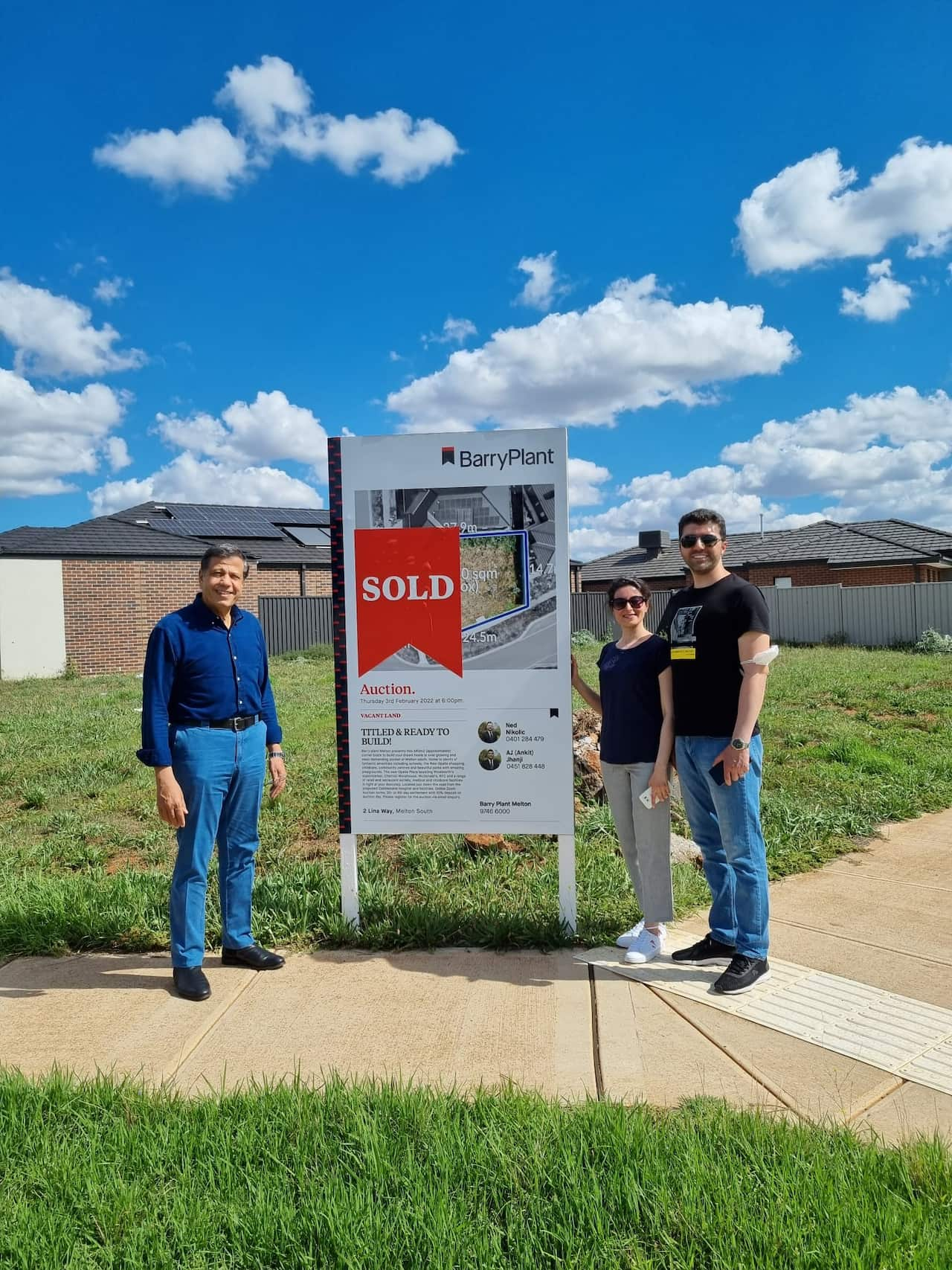
"I started to become suspicious about it," Shams says.
"[Sokarno] was not paying anything. He promised to give the revenue of Deniz Care, but he didn't."
In the following months, Shams asked for all the company's financial statements. He says the only thing he and Kaaranjaam ever received was an account summary showing a $357,000 balance, without a transaction history.
Like other investors, he had long been suspicious of Sokarno's unwillingness to provide access to the company's bank account.
"Every time he was giving me some excuses, I fully became sure that, 'Oh my God, we are trapped,'" Shams says.
"I understood it was never going to become a good business for us for our permanent residency pathway.
We lost our money, we lost our time.
Due to the resulting stress, Kaaranjaam was hospitalised in July 2022 after experiencing an anxiety attack.
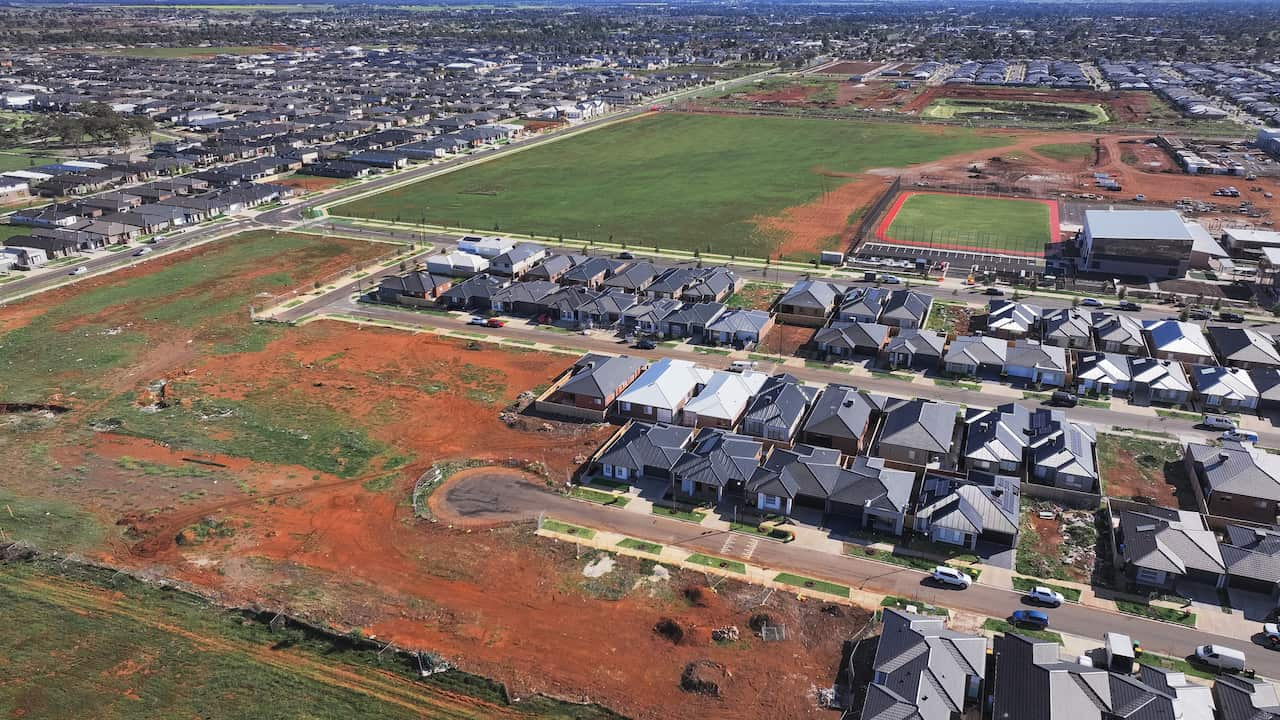
The couple decided to pursue legal action against Sokarno in September of that year after delays in building the property and continued denial of access to bank records.
The land was ultimately repossessed by the lender in September 2024, as no repayments had been made. SBS News has seen documents that show the lender repeatedly sought payment from Sokarno for an outstanding amount of $227,500 for at least a year before the property's repossession.
"Sokarno didn't even pay one instalment of the loan for purchasing the land. What does that mean?" Shams says.
Sokarno has blamed the collapse on Shams and Kaaranjaam lodging a caveat on the property in February 2023, a legal instrument that protects equity and prevents the sale or transfer of a property without the involvement of the party who lodges the caveat (typically the buyer).
Sokarno says while he was "fully prepared to commence construction", the caveat prevented him "from proceeding further with construction or refinancing". It is worth noting that a caveat does not preclude loan repayments being made on the property in question, which is the reason the property was repossessed.
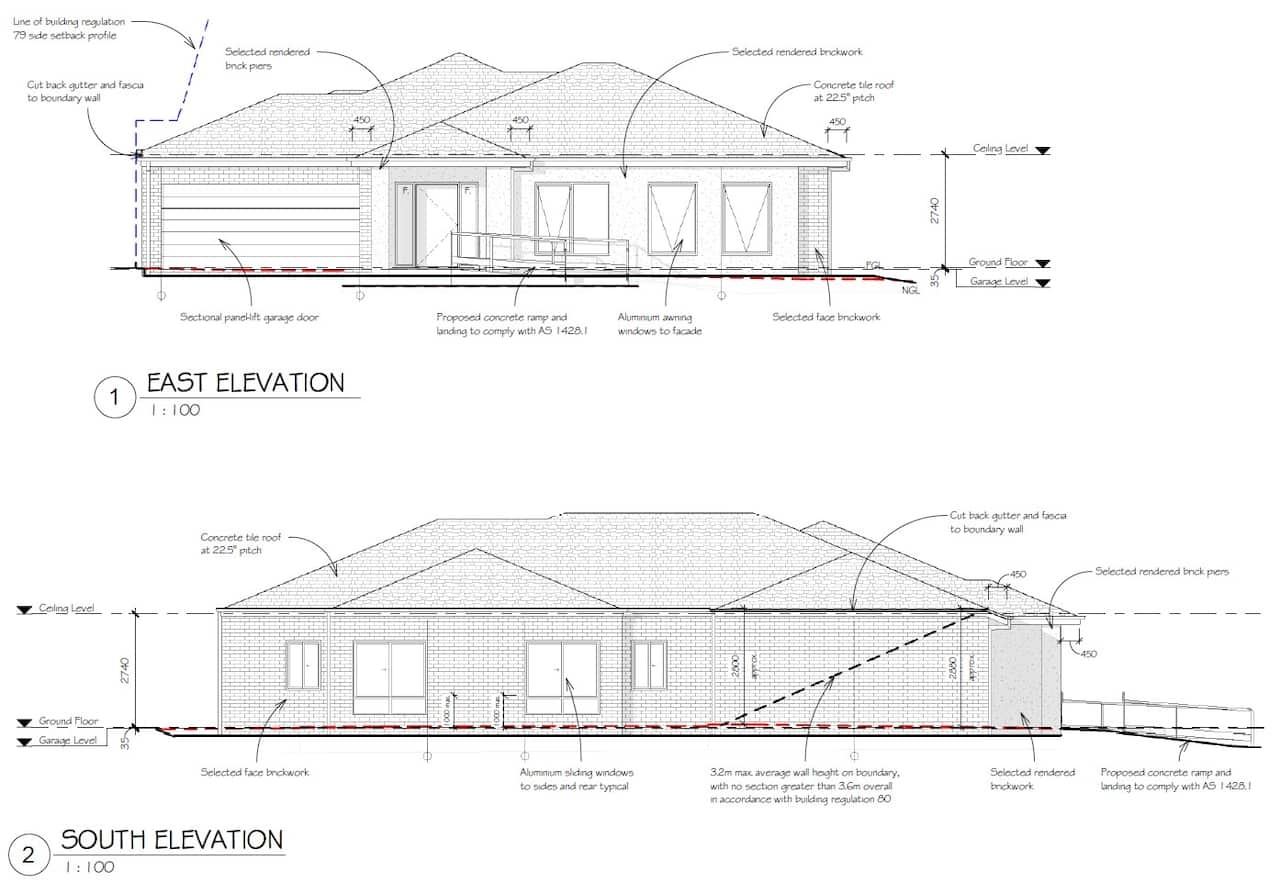
"In my view, the failure to bring the project to completion was due to their [Shams and Kaaranjaam's] voluntary withdrawal and subsequent legal actions, which created legal and financial barriers to progressing the development," Sokarno says.
According to an email Sokarno sent to Shams in August 2022, there was an amount of $357,103 remaining in the joint company's bank account. In October 2023, via their solicitors, Shams and Kaaranjaam tried to compel Sokarno to use those remaining funds to settle the defaulted loan; however, no payments were made, and the money was never refunded.
Responding to SBS News' questions, Sokarno says: "The reason I did not return any remaining funds is that, to the best of my knowledge and financial records, there were no remaining funds available to return."
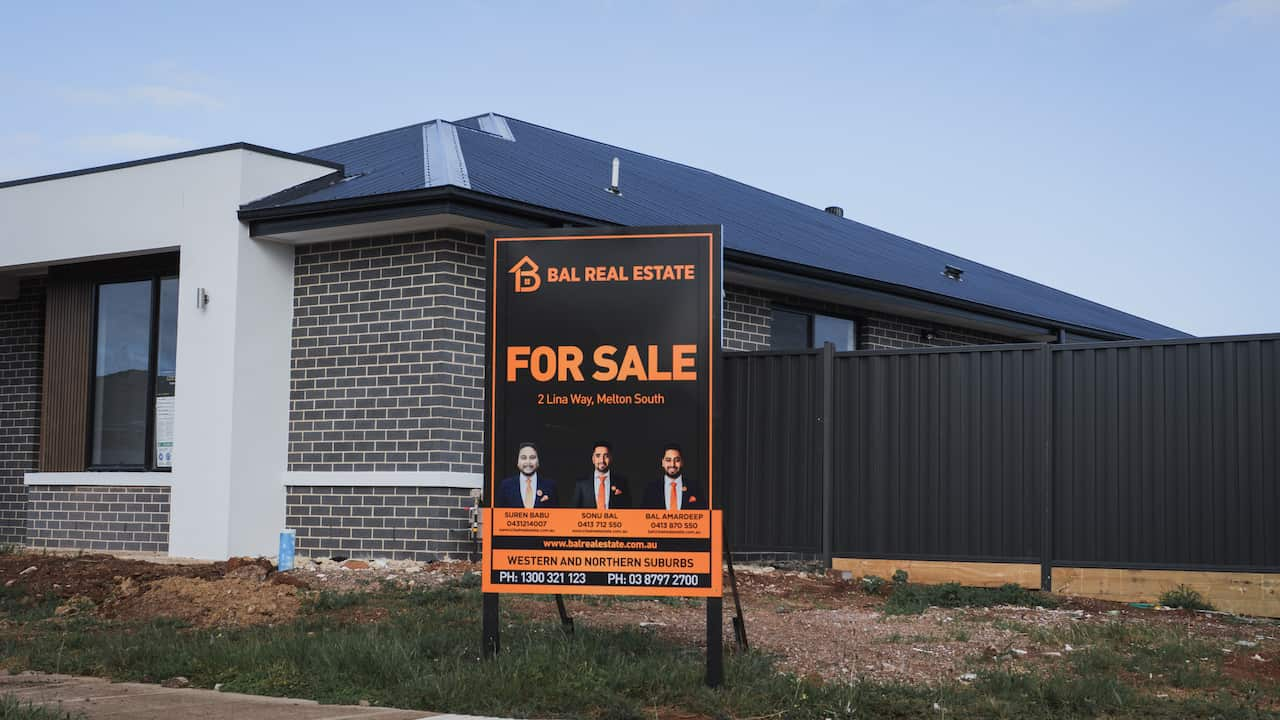
"Additionally, any potential return of funds was subject to the terms of our agreement, which outlined that funds could only be returned after costs and under specific exit conditions," he says.
Shams and Kaaranjaam dropped their claim against Sokarno in December 2022, as they were unable to continue paying their lawyers after spending an initial $16,000 on legal fees and were quoted almost $170,000 to complete the proceedings.
Overseas, CALD investors 'more vulnerable'
These stories are far from the only examples of private investment in SDA housing going awry.
The national peak body for the SDA housing market, the SDA Alliance, has been fielding a growing number of complaints over dodgy retail investment practices and the construction of housing that is not fit for purpose.
CEO Jeramy Hope tells SBS News there is "ongoing concern about the presence of unethical, underqualified, and at times outright fraudulent operators in the SDA market".
"We receive complaints each month from concerned families, investors and stakeholders about questionable practices," Hope says, adding that the alliance is preparing to report several matters of concern this month.
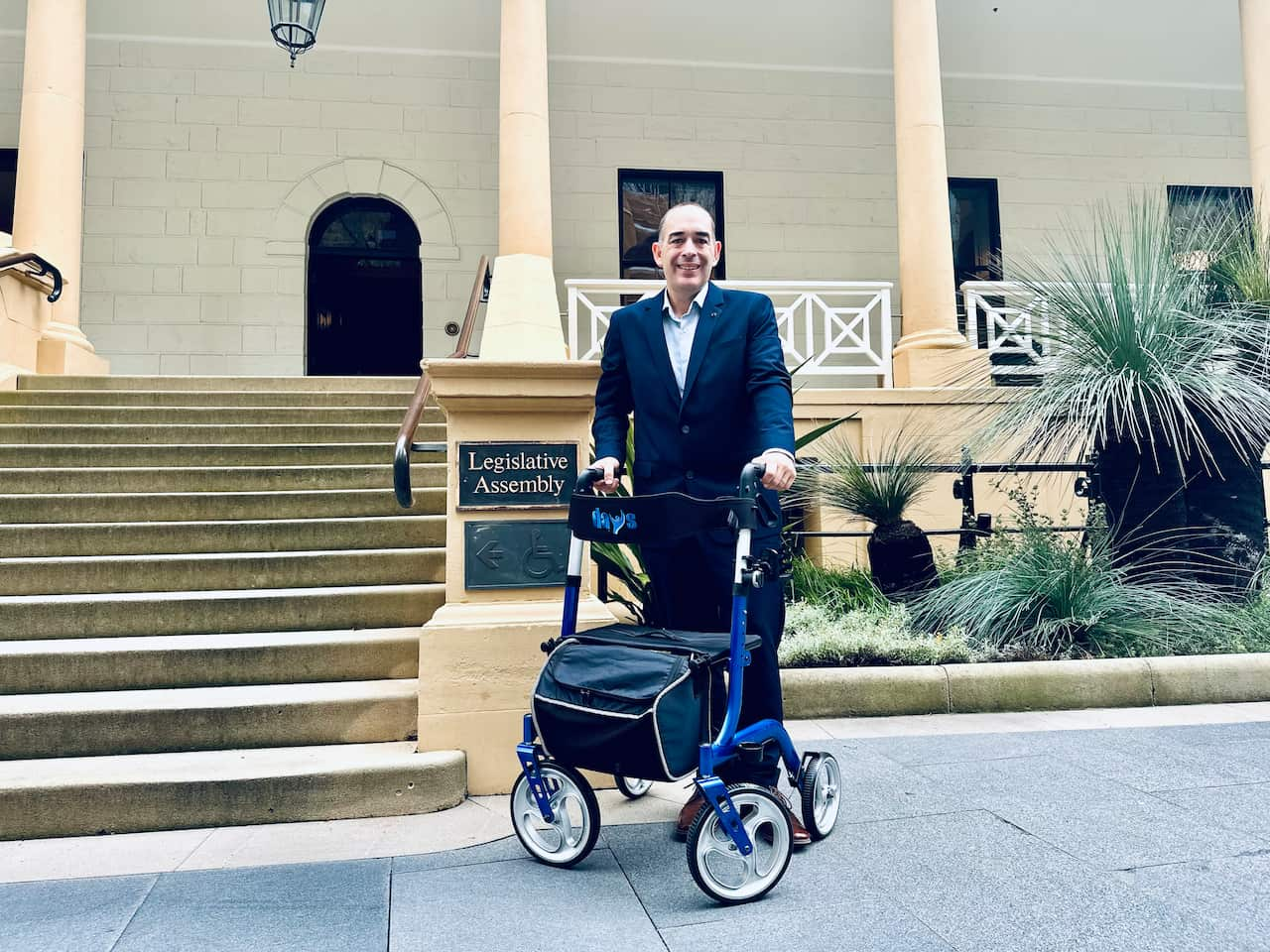
"These bad actors frequently promote SDA as a 'guaranteed high-return' or 'NDIS-backed' investment, misusing official terms and logos in marketing.
"These claims are often deceptive or outright false. SDA is not a standard real estate product; it is a complex, regulated housing stream underpinned by human rights obligations and participant choice."
Hope says his organisation is "increasingly seeing international investors, particularly from Asia and the Middle East, being targeted through property expos, migration schemes, and online promotions".
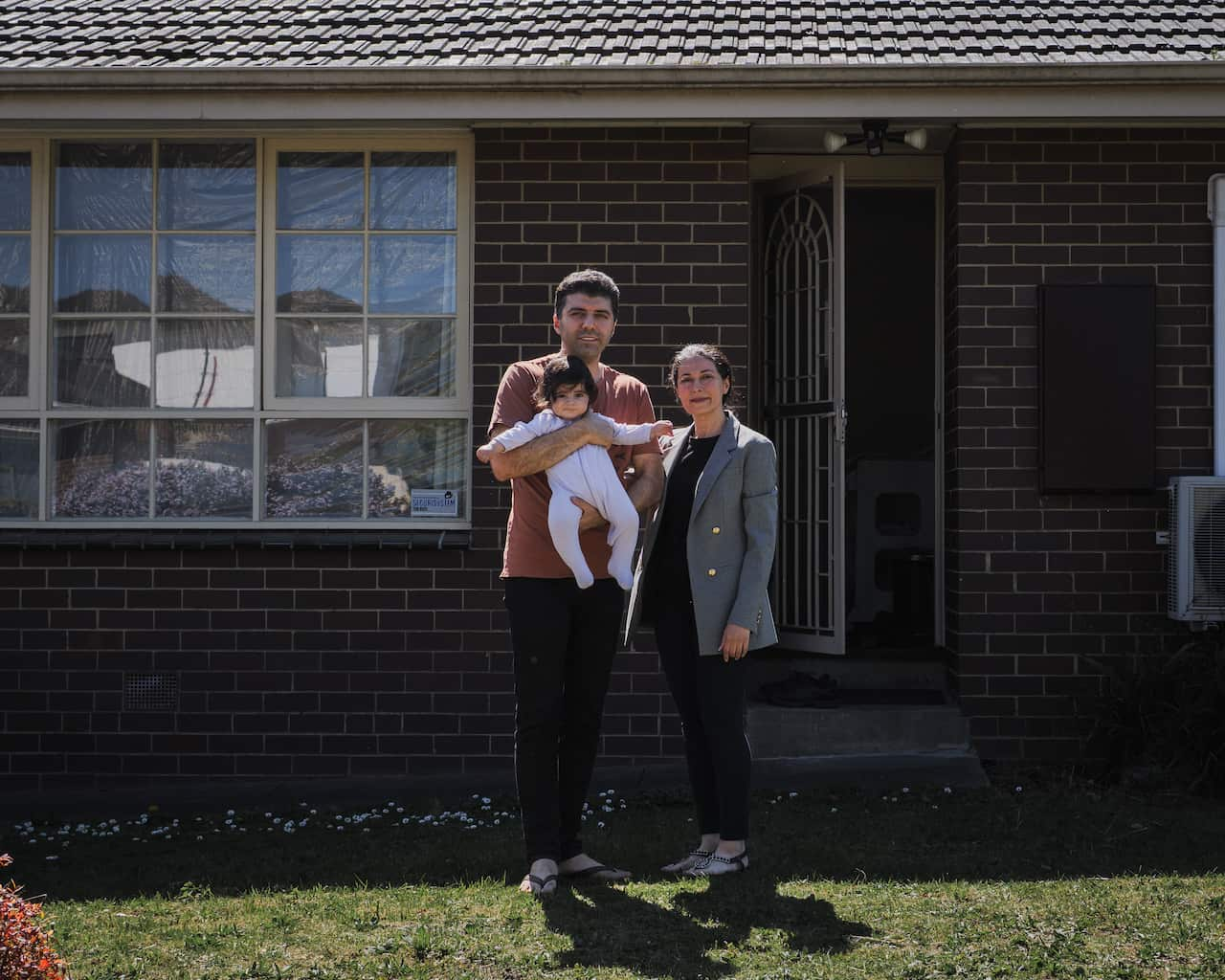
He says "investors from overseas or culturally and linguistically diverse (CALD) communities are often more vulnerable" to buying into such schemes.
"Language barriers, unfamiliarity with Australia's regulatory frameworks, and targeted marketing in their native languages all contribute to this vulnerability," he says.
According to Sokarno, Care Services Australia has only targeted overseas investors for SDA projects.
'Screwed over' by 'spruikers'
Ethical Property Investments CEO Goro Gupta — who has worked in disability housing since 2017 — says he's also heard multiple stories of foreign investors being "screwed over" by SDA "spruikers".
In May, the Courier Mail reported that Cocoon SDA Care — a company that has been the subject of much media coverage and which the NDIS has now permanently banned from providing disability support and services — sought to recruit foreign investors.
Gupta also says any promises of "guaranteed" government-backed returns for an SDA investment were a "lie".
"There is no direct relationship between the investor and the government. The way the system works is, once a resident moves in, an SDA provider can bill their plan, and it's up to the SDA provider what their arrangement with the landlord is," he says.
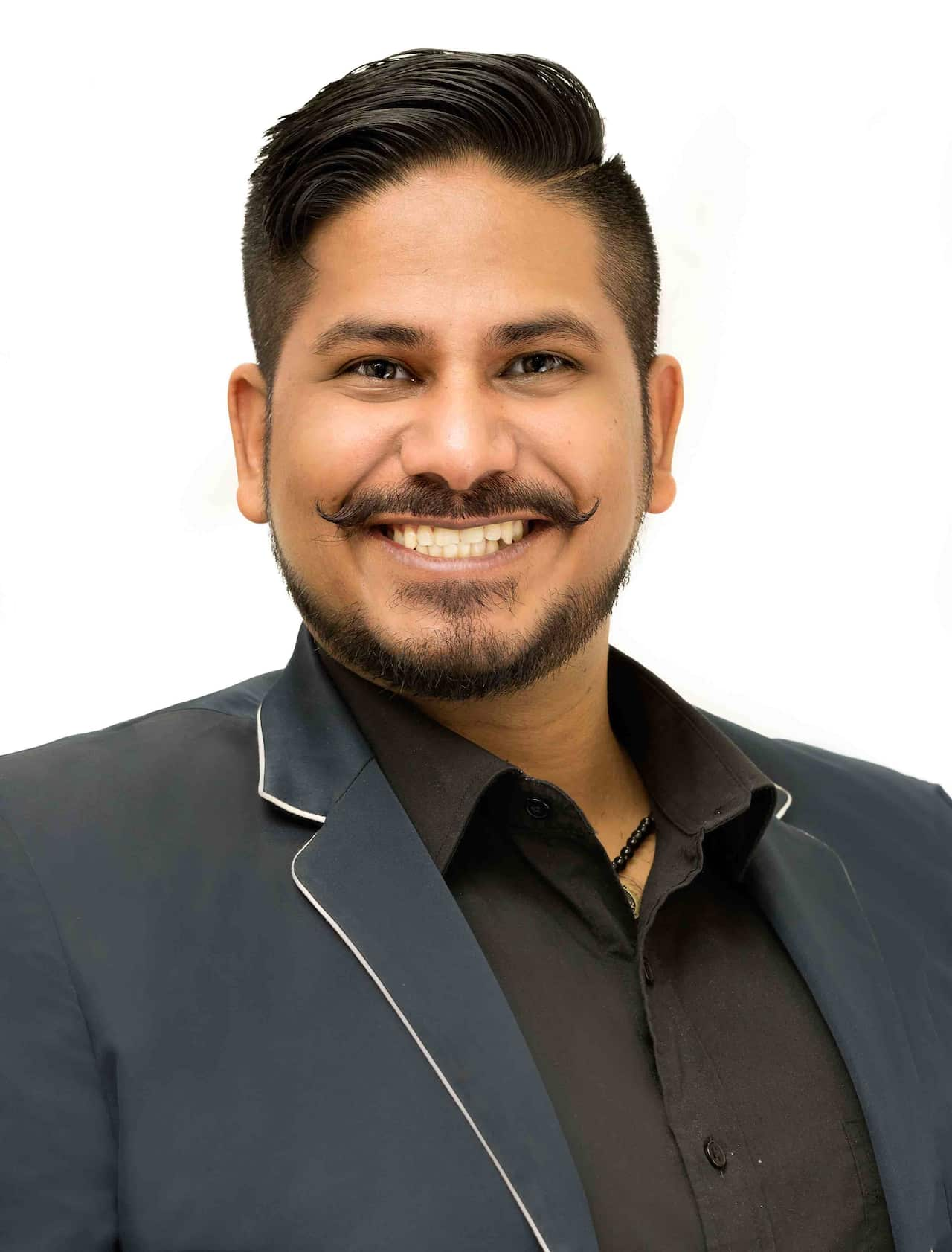
NDIS Minister Jenny McAllister agrees that finding a government-funded occupant for an SDA property isn't a guarantee.
"Specialist Disability Accommodation investments are not government-backed. Occupancy is not guaranteed," she says.
"There are unfortunately some people active in the Specialist Disability Accommodation sector that come to mum and dad investors and give them information that just isn't true."
Once a tenant moves in, general returns are typically anywhere from 8 to 15 per cent, with an industry median of around 12 per cent, Gupta says.
However, because much construction has occurred in areas with little or no demand, the national vacancy rate for available but empty SDA properties is around 16 per cent, according to SBS News' analysis of vacancy data from the National Disability Insurance Agency (NDIA).
That's despite an overall shortfall of 7,352 rentals nationally, based on the number of people currently eligible for SDA but not accessing it. (Around 40 per cent of SDA-eligible participants are not living in SDA dwellings.)
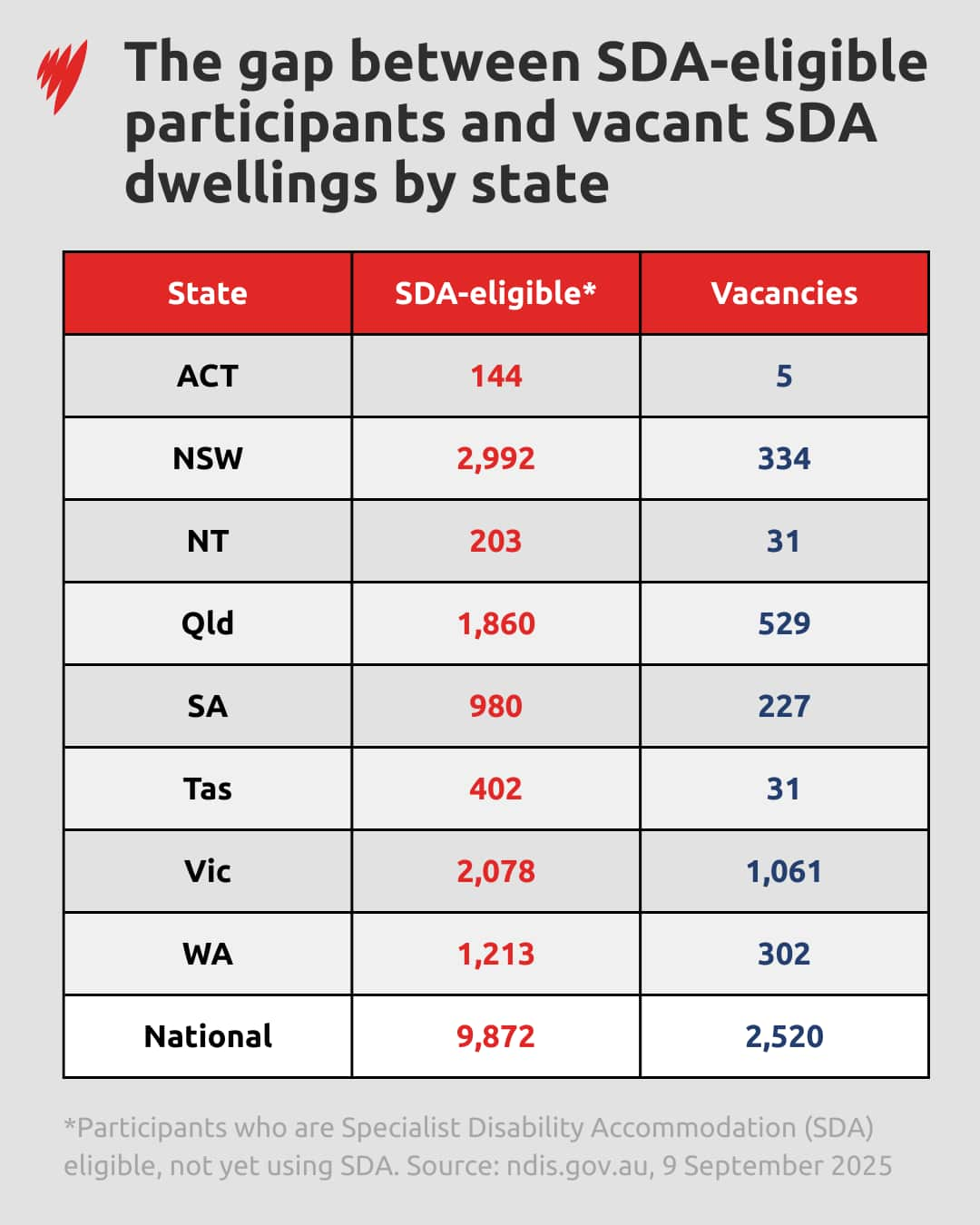
While vacant SDA properties leave investors out of pocket, it's not just specific investors who suffer from these poorly planned investments, Hope says.
"At the provider level, unscrupulous behaviour leads to oversupply in areas of low demand, distorts pricing, and discourages ethical investment," he says.
"At the participant level, the consequences are personal and distressing as people with disability may be placed in housing that is inappropriate, poorly built, or not aligned with their support needs, further limiting their choice and control."
Sokarno, Shahami still in business
Care Services Australia still provides disability and aged care services to multicultural communities and promotes itself as having over 3,000 "satisfied patients".
Information about companies in the NDIS — such as the number of employees they have or properties they manage — is not publicly available.
However, a reverse image search of the six customer testimonials listed on Care Services Australia's website, which includes customer names and photographs, shows all were generated using stock images.
Sokarno did not provide SBS News with further information about his company.
Of the several industry sources SBS News spoke to for this investigation, none had heard of Care Services Australia or Auscare.
Shahami's company R&K Immigration Group is also still operational and, as of September 2025, he is still a registered Australian migration agent.
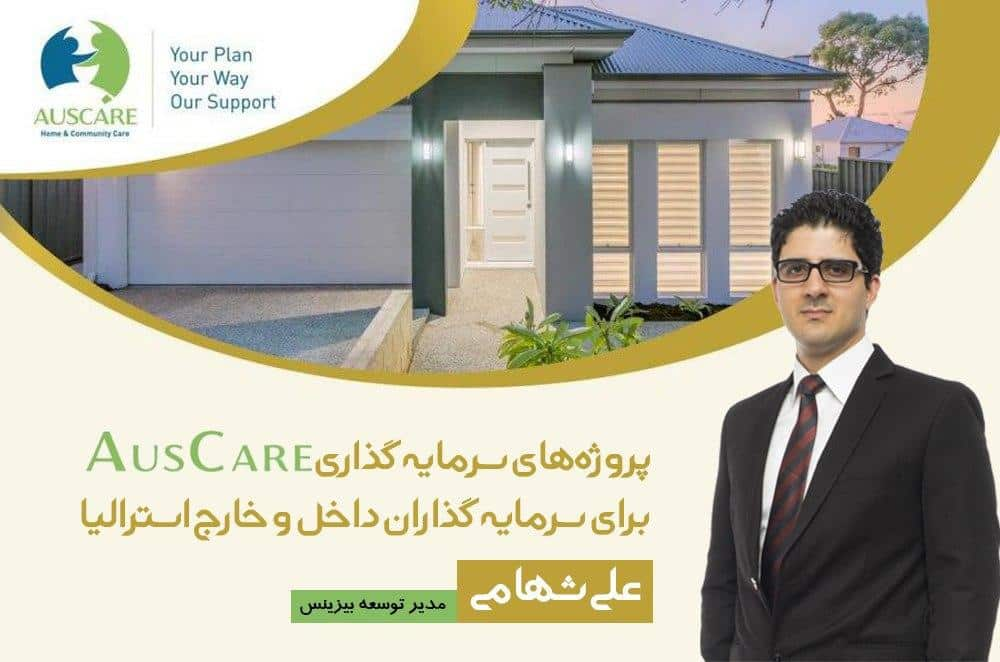
Groups that oversee the NDIS, such as the NDIA and NDIS Quality and Safeguards Commission, are primarily focused on protecting participants.
An NDIA spokesperson told SBS News the agency's "role in relation to Specialist Disability Accommodation is as a market steward".
"The NDIA is committed to supporting a robust and efficient market for SDA that gives NDIS participants the modern options and choices that they deserve," the spokesperson said.
"The NDIA does not own, commission, lease or provide SDA dwellings, nor does it regulate or investigate investment schemes.
"SDA investors should always conduct their own thorough due diligence and research, and seek independent legal and financial advice when deciding whether to invest in SDA."
Sokarno and Care Services Australia highlight that all investments carry risk. They claim that the risks with these particular investments, and the opportunity to get independent legal and financial advice before entering the joint venture agreements, were made clear to all investors at the time of investing.
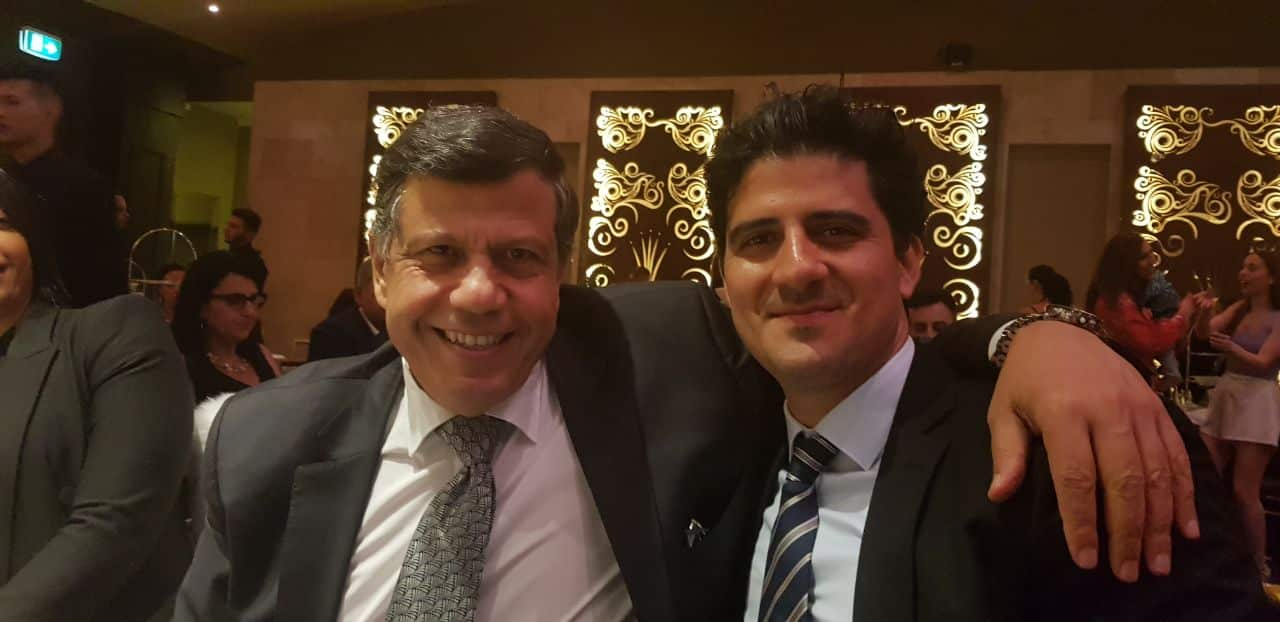
Suspected investor fraud is handled by the Australian Securities and Investments Commission (ASIC).
When asked whether the NDIA intends to alter the SDA scheme to shield against unethical investment from the private market, McAllister said: "Investors should contact ASIC if they are concerned that an SDA investment scheme has engaged in misleading behaviour or misappropriated investor funds."
Kaaranjaan and Shams lodged a report of misconduct in respect of Sokarno and Deniz Care with ASIC on 13 November 2024. They have not heard back since.
ASIC is a member agency of the NDIS Fraud Fusion taskforce, which the government launched in November 2022.
'We need accountability'
For many of Sokarno's clients, the future remains uncertain.
When Dehghanian first came to Australia, he found work renovating kitchens and bathrooms, and then he worked as a house painter.
He is now working as a car dealer but is unsure whether he will be able to obtain a permanent business visa to stay in Australia.
Mohammadi returned to Iran shortly after losing faith in Sokarno's plan, where he remains today.
"I thought if I stayed in Australia, I would only spend money [not make any] … I was hopeless," he says.
Shams and Kaaranjaam are still living in Melbourne, and Shams is working as an Uber and Amazon delivery driver to support his wife and their seven-month-old daughter.
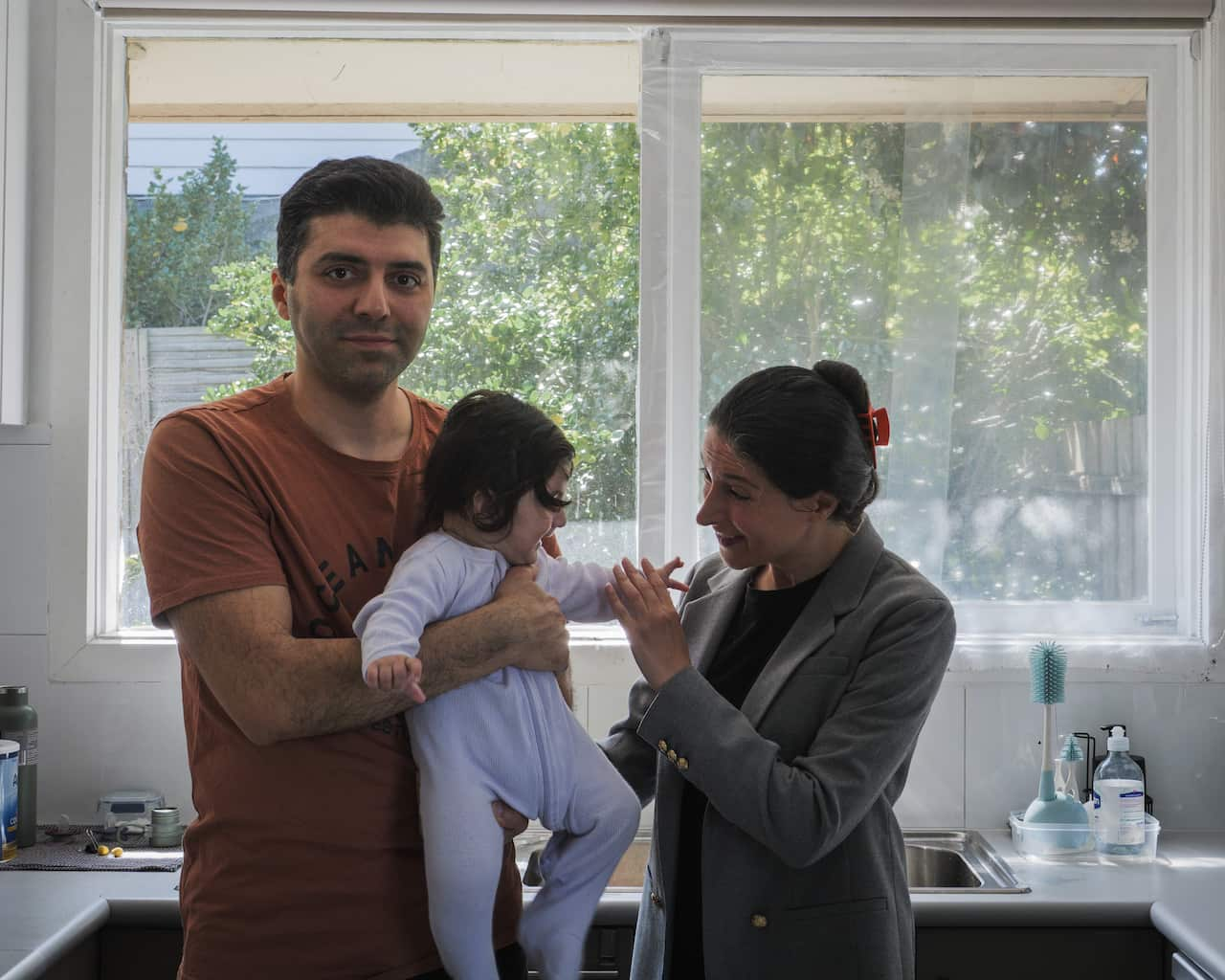
They tried to apply for Centrelink payments, but their visa status makes them ineligible.
"So we went to a charity and took some food from them. I didn't want to say that, because it's a shame for me. I brought $600,000 here in Australia, but I need to go to a charity and ask them for help with food," Shams says.
I feel devastated. I don't know what to do.
Their visas will expire in March 2026 and, unless they can find another visa pathway, they will return to Iran "to start from scratch".
Shams says he has found a pharmacy in Western Australia that has agreed to sponsor him for a work visa, and the couple will soon move so he can start work there.
He says experiences such as this can "destroy lives".
"We’ve had really hard times — harder than we could have ever imagined. We brought $600,000 to Australia, hoping to invest and build a better life than we had in Iran. But I never imagined that instead of stability, I would be forced to struggle just to survive.
"We believed in this country; we still do. But belief is not enough. We need accountability, enforcement, and protection for vulnerable migrants."
Clarification: This story has been updated to include an additional statement from Ahmed Sokarno and Care Services Australia relating to investment risks.
For the latest from SBS News, download our app and subscribe to our newsletter.
